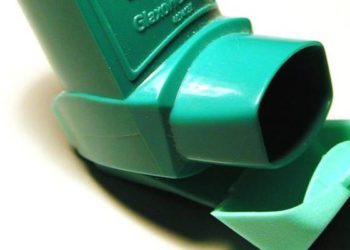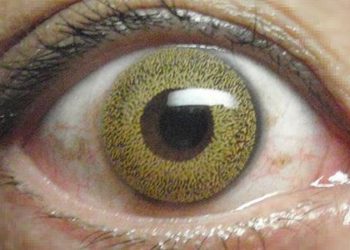Vepdegestrant extends progression-free survival in ER-positive, HER2-negative breast cancer
1. In this randomized controlled trial, vepdegestrant achieved a longer progression-free survival than fulvestrant in patients with advanced ER-positive, HER2-negative breast cancer.
2. Vepdegestrant demonstrated an acceptable safety profile and was associated with a low rate of discontinuation due to adverse events.
Evidence Rating Level: 1 (Excellent)
Study Rundown: Cyclin-dependent kinase 4 and 6 (CDK4/6) inhibitors combined with endocrine therapies are standard treatments for estrogen receptor (ER)-positive, human epidermal growth factor receptor 2 (HER2)-negative breast cancer; however, nearly half of patients develop resistance through genetic alterations, most commonly ESR1 mutations. Vepdegestrant (ARV-471), an oral proteolysis-targeting chimera (PROTAC), promotes degradation of the ER receptor and represents a potential therapeutic option in this setting. This phase 3 trial compared the efficacy and safety of vepdegestrant versus fulvestrant in patients previously treated with a CDK4/6 inhibitor and endocrine therapy. Median progression-free survival (PFS) in those with ESR1 mutations was more than twice as long with vepdegestrant compared to fulvestrant—a significant result. The objective response rate in the vepdegestrant group was more than four times higher than that observed with fulvestrant. The incidence of adverse events was similar between treatment arms, but discontinuation due to side effects occurred more frequently in the vepdegestrant group. The most common grade 4 adverse events in this group were neutropenia and hypokalemia, and no deaths were attributed directly to either treatment. Limitations included a short follow-up period, which restricted evaluation of overall survival and durability of response, and underrepresentation of specific populations. Despite these limitations, the results support the safety and potential efficacy of vepdegestrant in advanced ER-positive, HER2-negative breast cancer, particularly among patients harboring ESR1 mutations, and highlight the need for longer follow-up to define its clinical benefit better.
Click here to read the study in NEJM
Relevant Reading: First-Line Camizestrant for Emerging ESR1-Mutated Advanced Breast Cancer
In-Depth [randomized controlled trial]: This phase 3 trial compared vepdegestrant with fulvestrant in advanced ER-positive, HER2-negative breast cancer. Patients received either 200 mg oral vepdegestrant daily or 500 mg intramuscular fulvestrant biweekly for the first month and monthly thereafter. Eligible participants were ≥18 years, had unresectable, non-radiatable locoregional recurrent or metastatic disease, prior exposure to a CDK4/6 inhibitor, and at least six months of endocrine therapy before progression; key exclusions included prior chemotherapy, fulvestrant, elacestrant, PI3K/AKT/mTOR inhibitors, or other investigational agents. In total, 624 patients were randomized (313 vepdegestrant; 311 fulvestrant). Among patients with ESR1 mutations, median progression-free survival (PFS) was 5.0 months (95% CI, 3.7–7.4) with vepdegestrant versus 2.1 months (95% CI, 1.9–3.5) with fulvestrant (hazard ratio [HR], 0.58; 95% CI, 0.43–0.78; p<0.001). In the overall population, PFS did not differ significantly (HR, 0.83; 95% CI, 0.69–1.01; p=0.07). Overall survival analysis was limited as fewer than one-quarter of the target death events occurred. Objective response rates were 18.6% (95% CI, 12.1–27.4) with vepdegestrant versus 4.0% (95% CI, 1.6–9.8) with fulvestrant. Adverse events occurred in 86.9% and 81.4% of the vepdegestrant and fulvestrant groups, respectively; the most common with vepdegestrant were fatigue (26.6%), increased aspartate aminotransferase (14.4%), and increased alanine aminotransferase (14.4%). Grade 3–4 events occurred in 23.4% of vepdegestrant patients and 17.6% of fulvestrant patients, most commonly neutropenia (1.9%) and hypokalemia (1.9%) in the vepdegestrant arm. QT prolongation occurred in 9.9% of vepdegestrant patients without clinical sequelae. No deaths were attributed to either treatment. Overall, vepdegestrant demonstrated a favorable safety profile, higher objective response rates, and significantly prolonged PFS in patients with ESR1 mutations.
Image: PD
©2025 2 Minute Medicine, Inc. All rights reserved. No works may be reproduced without expressed written consent from 2 Minute Medicine, Inc. Inquire about licensing here. No article should be construed as medical advice and is not intended as such by the authors or by 2 Minute Medicine, Inc.



![2MM: AI Roundup- AI Cancer Test, Smarter Hospitals, Faster Drug Discovery, and Mental Health Tech [May 2nd, 2025]](https://www.2minutemedicine.com/wp-content/uploads/2025/05/Untitled-design-350x250.png)





